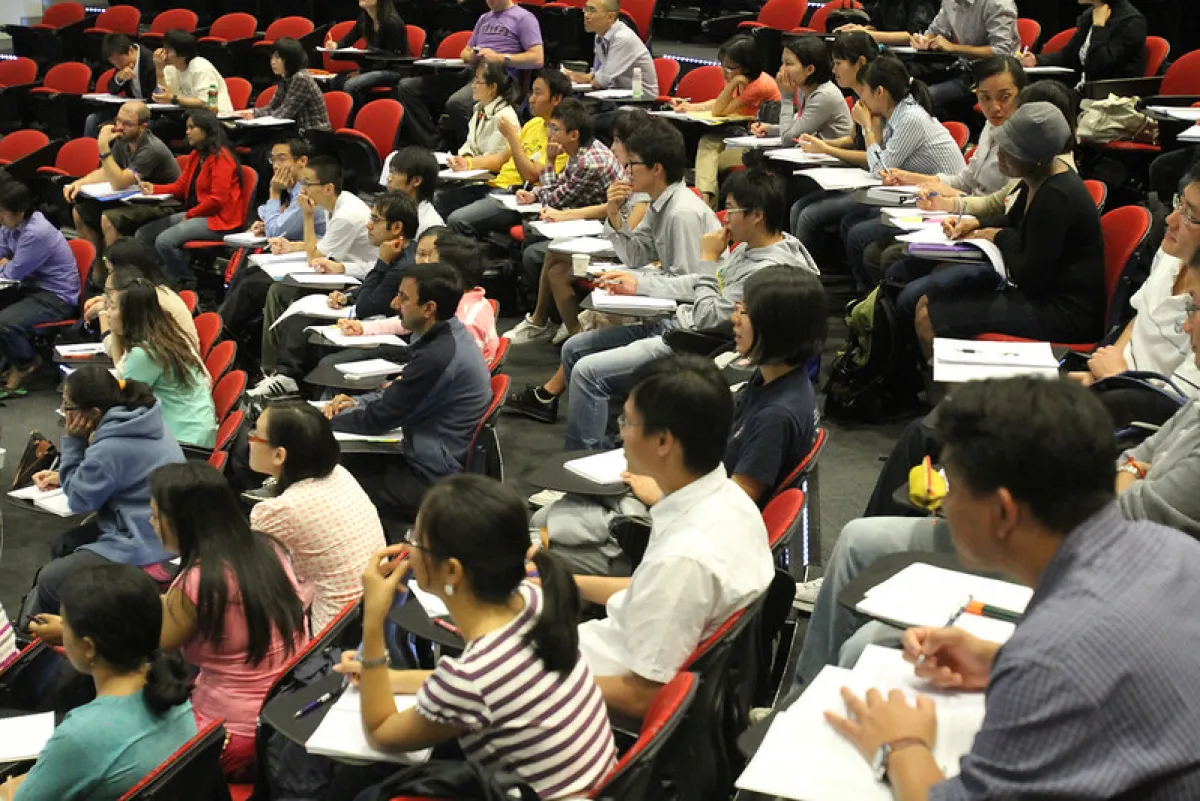NCEPH Honours Student Seminars
Please join us as we hear about recent research undertaken by three Honours students from NCEPH.
Cost
Cost per person: 0.00
Content navigation
Description

Please join us as we hear about recent research undertaken by three Honours students from NCEPH. Details below.
A stratified mathematical modelling approach to analysing respiratory syncytial virus monoclonals, by Amy Gooday
 Respiratory syncytial virus (RSV) is a common respiratory infectious disease in children, with premature infants being of increased risk of adverse outcomes. Many pharmacological RSV interventions are being developed; however, their characteristics are not well understood.
Respiratory syncytial virus (RSV) is a common respiratory infectious disease in children, with premature infants being of increased risk of adverse outcomes. Many pharmacological RSV interventions are being developed; however, their characteristics are not well understood.
This project investigated how potential characteristics of RSV monoclonals influence the qualitative and quantitative outputs of mathematical models. We also aimed to stratify our model into preterm and non-preterm populations to account for the differences in risk of adverse outcomes.
We found that changes to characteristics of RSV monoclonals did not influence qualitative outputs, with a consistent finding that premature infants should be prioritised under any population wide intervention strategy. We also found that changes to characteristic of RSV monoclonals significantly influenced our quantitative results.
About Amy
Amy is an Honours student at NCEPH. She is in her final year of a Bachelor of Science (Advanced) (Honours) and is supervised by Professor Katie Glass.
Linked or Unlinked Data? Comparing Datasets for Quantifying Country of Birth related Mortality Inequalities in Australia, by Elma Islam
 Estimating health inequalities lies pivotal to Australian health organisations in their endeavour to achieve better health outcomes for all Australians. Various data types are used for measuring mortality rates with a recent uprise in linked data - based on the linkage of individuals’ records across data sources, providing robust information. However, linked data has been found to misrepresent inequalities in sub-populations that have reduced proportions of record linkage. Unlinked data is the alternative, using two separate data sources without linking individuals' records. This may also introduce bias in mortality rate findings. This seminar will delve into linkage error, numerator-denominator bias, and their implications by presenting findings from our cohort study on the Australian population using Census 2016 and Death Registrations data from 2016-2019.
Estimating health inequalities lies pivotal to Australian health organisations in their endeavour to achieve better health outcomes for all Australians. Various data types are used for measuring mortality rates with a recent uprise in linked data - based on the linkage of individuals’ records across data sources, providing robust information. However, linked data has been found to misrepresent inequalities in sub-populations that have reduced proportions of record linkage. Unlinked data is the alternative, using two separate data sources without linking individuals' records. This may also introduce bias in mortality rate findings. This seminar will delve into linkage error, numerator-denominator bias, and their implications by presenting findings from our cohort study on the Australian population using Census 2016 and Death Registrations data from 2016-2019.
About Elma
Elma Islam is an Honours candidate at the National Centre for Epidemiology and Population Health, within the ANU College of Law, Governance and Policy. Throughout her studies, she has acquired solid experience in applied health data analysis which she utilises in her research. She is pursuing a career in health, with specific aspirations to be a leader in the field of epidemiology. Elma hopes to progress her work on health inequalities in vulnerable populations to contribute to the public health landscape both nationally and globally.
Improving the acceptability, uptake and effectiveness of Covid-19 public health interventions with social protection measures: a rapid systematic review, by Sai Campbell
 Governments around the world implemented a range of public health measures to control the covid-19 pandemic such as stay-at-home orders, vaccination, and quarantine requirements. The effectiveness of these voluntary interventions is, however, contingent on public compliance. This rapid systematic review therefore aimed to evaluate supplemental social protection measures such as income support on the acceptability, uptake and effectiveness Covid-19 public health interventions across a range of settings.
Governments around the world implemented a range of public health measures to control the covid-19 pandemic such as stay-at-home orders, vaccination, and quarantine requirements. The effectiveness of these voluntary interventions is, however, contingent on public compliance. This rapid systematic review therefore aimed to evaluate supplemental social protection measures such as income support on the acceptability, uptake and effectiveness Covid-19 public health interventions across a range of settings.
About Sai
Sai Campbell is an Honours student at the National Centre for Epidemiology and Public Health.
Location
** Hybrid Event **
Bob Douglas Lecture Theatre, Building 62, Mills Road ACTON 2601
or
Join via Zoom
Meeting ID: 821 5375 9112
Password: 743640
